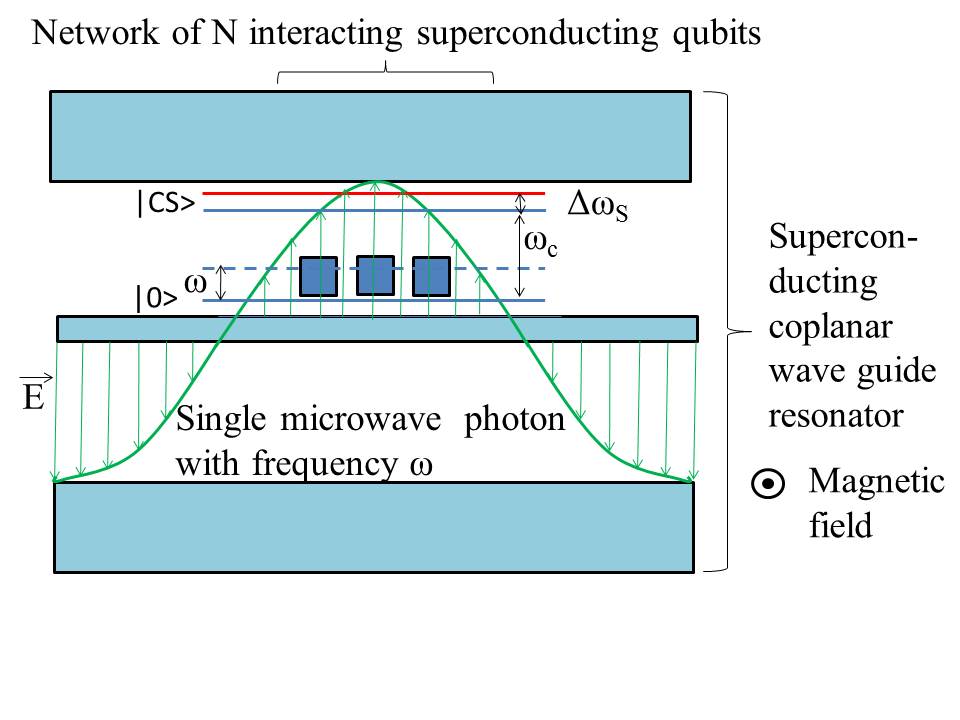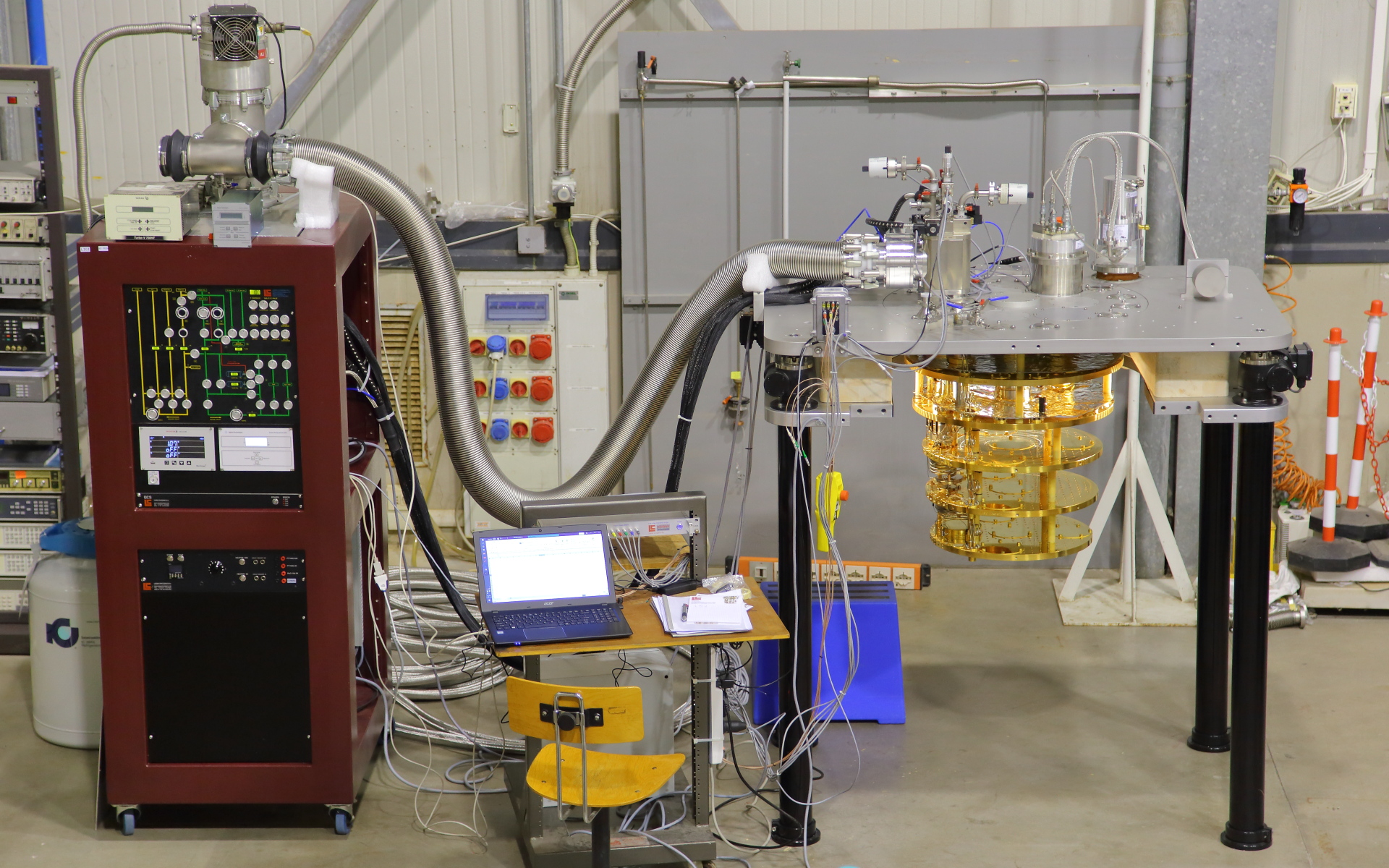
Detection of single photons in the microwave range has a number of applications ranging from galactic dark matter axions searches to quantum computing and metrology. A novel approach to acquisition of extremely low energy microwave signals (~1 GHz), based on the general concept of a passive quantum detection is proposed. For such highly sensitive detector (quantum antenna) the key novel concept which is intended to use is the coherent quantum network composed of a large amount of strongly interacting superconducting qubits embedded in a low dissipative superconducting resonator. The dynamics of coherent quantum networks based on two types of superconducting qubits-transmons and flux qubits-will be fabricated and explored.. A spatially distributed network of superconducting qubits interacting off-resonance with the incoming radiation, shows the collective ac Stark effect that can be measured even in the limit of single photon counting (Fig.1). The interaction of the signal with the collective quantum states occurring in the network of superconducting qubits has the fundamental character of a quantum non-demolition measurement, whereby the quantum states of the signal and the collective states of qubits become gradually entangled. In particular, by employment of the network of large number of qubits (N) and utilization of a collective mode established in the network, it is possible to exceed the standard quantum limit and reach the so-called Heisenberg limit of sensitivity which is proportional to 1/N instead of ~1/√N in case of N non directly interacting qubits. Assessment of the progress will be done by testing arrays with increasing number of superconducting qubits by using complementary experiments with different single photon sources. The feasibility of the superconducting network detector for galactic dark matter axions search will be finaly tested by axion conversion experiment in a magnetic field.

 | This project has received funding from the European Union’s Horizon 2020 research and innovation programme under grant agreement No 863313. Grant amount 2 456 232.50 Euro. |
